Nonesuch Releases Jeremy Denk’s Recording of Bach’s Goldberg Variations September 24
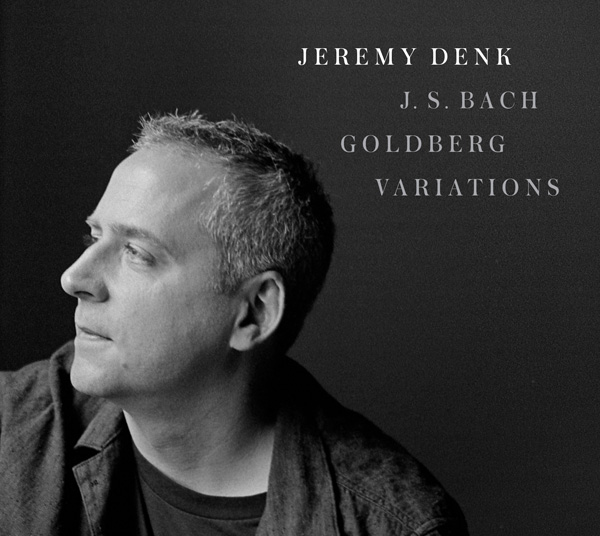
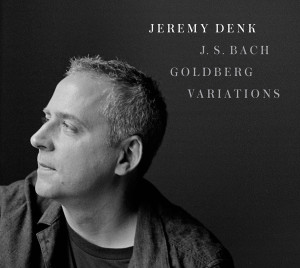 Nonesuch releases pianist Jeremy Denk’s recording of J.S.Bach’s Goldberg Variations on September 24, 2013, available for pre-order now in the Nonesuch Store. A companion DVD accompanies the album and contains video “liner notes,” with Denk demonstrating passages on the piano as he explains certain details of the iconic piece. (Watch an excerpt below.) The beloved Bach work has long been a staple of Denk’s repertoire and his performances have received critical praise. The New York Times has remarked on his “profound affinity with Bach,” and the Philadelphia Inquirer called Denk’s performance of this piece “mesmerizing,” noting that his “Bach is expressive, but not fussy or overthought. Technically unbothered by the work’s more explosive spots and remarkably fluid in its scurrying passage work, he was able to make connections between and among bits of material that sometimes occur many seconds apart.”
Nonesuch releases pianist Jeremy Denk’s recording of J.S.Bach’s Goldberg Variations on September 24, 2013, available for pre-order now in the Nonesuch Store. A companion DVD accompanies the album and contains video “liner notes,” with Denk demonstrating passages on the piano as he explains certain details of the iconic piece. (Watch an excerpt below.) The beloved Bach work has long been a staple of Denk’s repertoire and his performances have received critical praise. The New York Times has remarked on his “profound affinity with Bach,” and the Philadelphia Inquirer called Denk’s performance of this piece “mesmerizing,” noting that his “Bach is expressive, but not fussy or overthought. Technically unbothered by the work’s more explosive spots and remarkably fluid in its scurrying passage work, he was able to make connections between and among bits of material that sometimes occur many seconds apart.”
Denk plays in 15 US cities this fall, including a performance of the Goldberg Variations in Boston, Chicago, and DC and four nights in Davies Hall, one at Carnegie Hall, and one at the Krannert Center (in Champaign-Urbana) with the San Francisco Symphony playing Mozart’s Piano Concerto No. 25 in C Major, K. 503. See below for the currently scheduled US dates; for details and tickets, visit nonesuch.com/on-tour.
Writing for NPR’s Deceptive Cadence blog last year, Denk said, “The best reason to hate the Goldberg Variations—aside from the obvious reason that everyone asks you all the time which of the two [Glenn Gould] recordings you prefer—is that everybody loves them.” He continued, “Yes, I’m suspicious of the Goldbergs’ popularity. Classical Music is not really supposed to be that popular. I worried for years that I would be seduced into playing them, and would become like all the others—besotted, cultish—and that is exactly what happened. I have been assimilated into the Goldberg Borg.”
Denk’s previous releases include a recording of music by Charles Ives, released on his own Think Denk Media label, and a Nonesuch album of works by Beethoven and Ligeti. He also is an avid chamber musician and a respected writer, both on his blog and in such publications asThe New Yorker. Denk is expanding a recent article in that publication into a book that will be published by Random House.
Composer Andrew Norman to join USC faculty
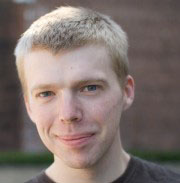
 We are so excited that Andrew Norman will be returning to the west coast as a member of USC’s Thornton School of Music faculty and as Los Angeles Chamber Orchestra’s Composer in Residence.
We are so excited that Andrew Norman will be returning to the west coast as a member of USC’s Thornton School of Music faculty and as Los Angeles Chamber Orchestra’s Composer in Residence.
The 2014 Festival (June 12-15) led by Music Director Jeremy Denk will include works by Norman.
Read the full LA Times article by Mark Swed here >>
“In recent years, Norman has worked with the Los Angeles Chamber Orchestra as its composer in residence. He studied at USC and Yale University before embarking on his professional composing career.
Norman was a finalist for the 2012 Pulitzer Prize in music for his piece ‘The Companion Guide to Rome.'”
Timo Andres’ “Home Stretch” out on Nonesuch July 30th
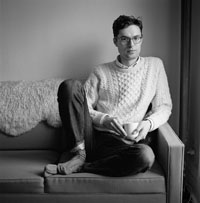
Timo Andres’s Home Stretch out on Nonesuch July 30
Timo Andres, piano
Metropolis Ensemble
Andrew Cyr, conductor
ANDRES: Home Stretch
MOZART: Piano Concerto No. 26 in D, “Coronation” (Completed by Andres)
ANDRES: Paraphrase on Themes of Brian Eno
NPR Music: “First Listen” streams Home Stretch in its entirety this week.
Click here for the stream.
On Timo Andres’s upcoming Nonesuch album, Home Stretch (July 30, 2013), he performs with Andrew Cyr and the Metropolis Ensemble, pairing the title work with two reinventions of works by musical heroes Mozart and Brian Eno: Mozart’s “Coronation” concerto andParaphrase on Themes of Brian Eno. Album pre-orders are available now at nonesuch.com and include an exclusive print of the first page of the Home Stretchscore, autographed by the composer. To celebrate the release, Andres, artist and book designer Peter Mendelsund and the New Yorker’s Leo Carey will host a conversation about artistic influence. The event will be held at Housing Works Bookstore Cafe on July 30 at 7:00 PM, and is free. Andres will perform music from the record, including his own work and pieces by Brian Eno and Mozart.
Tuesday, July 30
7:00 PM – 8:30 PM
Housing Works Bookstore Cafe
126 Crosby Street
New York, NY 10012
Free
Home Stretch was written for pianist David Kaplan and was conceived as a companion piece to Mozart’s Piano Concerto, No. 12, K. 414. Andres wanted the piece to reflect his friend Kaplan’s personality. Andres notes, “I knew I wanted Home Stretch to have something to do with fast cars, which David is obsessively interested in. The piece is in three large sections that gradually accelerate: beginning in almost total stasis, working up to an off-kilter dance with stabbing accents and ushering in a sturm-und-drang cadenza that riles itself up into a perpetual-motion race to the finish. However, there are always little ‘smudges’ of music from each section in the others, sometimes fitting into their new context, sometimes balefully interrupting.”
Also on the album is Mozart’s Piano Concerto No. 26 in D, “Coronation,” completed by Andres. A virtuosic improviser, Mozart left much of the solo part unwritten as he expected to play the piece himself. In particular, the left hand is mostly absent from the original manuscript. Pianists generally play from a completed score that adds simple accompaniment patterns and harmonies for the left hand, but Andres’s treatment of the concerto takes a wholly different approach. He inserts his own voice into the left hand and ends the work with newly written cadenzas. He explains, “I approached the piece not from a scholarly or editorial perspective, but more as a sprawling playground for pianistic invention and virtuosity, taking cues from the composer-pianist tradition Mozart helped to crystallize.” The New Yorker’s Alex Ross wrote on his blog that the result is “mesmerizing.”
The recording ends with Andres’s Paraphrase on Themes of Brian Eno. Already an influential force in popular music history, Brian Eno is increasingly gaining recognition from classical composers. As Andres writes, Eno is a composer with “two quite distinct sides: as an innovator who works in ambient and collage music, and as a quirky and crafty pop songwriter. It’s all interesting, but the really amazing things happen when these musical personalities overlap and wear away each other’s surfaces.” In Paraphrase on Themes of Brian Eno, Andres focuses on Eno’s albums Before and After Science and Another Green World. He builds what he terms, “a nineteenth century style ‘orchestral paraphrase’ on the subject of Eno’s music.”
Home Stretch was recorded at Seiji Ozawa Hall at Tanglewood and was produced by David Frost. It is Andres’s second album with the Nonesuch label; his first, Shy and Mighty, was praised by the New York Times for its “inventiveness and originality,” and by the Guardian for the way it “glides across stylistic boundaries in a totally unselfconscious way.”
Timo Andres is a composer and pianist who grew up in rural Connecticut and now lives in Brooklyn, NY. His debut album, Shy and Mighty, which features 10 interrelated pieces for two pianos, performed by Andres and pianist David Kaplan, was released by Nonesuch Records in May 2010 to critical acclaim. Alex Ross wrote in the New Yorker that Shy and Mighty “achieves an unhurried grandeur that has rarely been felt in American music since John Adams came on the scene… more mighty than shy, [Andres] sounds like himself.” In the current season, Andres plays a solo recital of his own works alongside those by Chopin, Thomas Adès and Schumann for Lincoln Center’s Great Performers; a solo recital for San Francisco Performances, and a duo program with Gabriel Kahane for the Library of Congress. Commissions include a new piano quintet written for Jonathan Biss and the Elias String Quartet, presented by Wigmore Hall, Carnegie Hall, the Concertgebouw Amsterdam, and San Francisco Performances; a solo piano work for Kirill Gerstein commissioned by the Gilmore Foundation, and a new string quartet for the Library of Congress, to be premiered by The Attacca Quartet.
Leo Carey is a Senior Editor at the New Yorker magazine, where he has worked for 15 years. He was born in Oxford, England and studied English Literature at Oxford University. As an editor at the New Yorker, he has worked on a wide range of non-fiction. His own writings have appeared in the New Yorker, the New York Times, the Washington Post, and the Times Literary Supplement. In his spare time he plays the piano and cello.
Peter Mendelsund is the Associate Art Director of Alfred A. Knopf Books, the Art Director of Pantheon Books and Art Director of Vertical Press (and a recovering classical pianist). His designs have been described by the Wall Street Journal as being “the most instantly recognizable and iconic book covers in contemporary fiction.” His writing on literature, design and other matters can be found on his blog: jacketmechanical.
New York-based Metropolis Ensemble is a Grammy-nominated chamber orchestra dedicated to classical music in its most contemporary forms.
Housing Works Bookstore Cafe is one of downtown New York’s most vital cultural institutions, presenting an eclectic mix of events — from readings and concerts to comedy nights and storytelling competitions -– featuring many of today’s most exciting artists. The bookstore is staffed almost entirely by volunteers and 100 percent of its profits go to Housing Works, Inc., which provides housing, healthcare, job training, and advocacy for New Yorkers living with HIV/AIDS. As an independent cultural center, it offers patrons a unique opportunity to join the fight against AIDS and homelessness simply by buying or donating books; eating at the cafe; coming to concerts, readings, and special events; or volunteering on their staff.
Remembering A Festival Family Member: Betty Izant
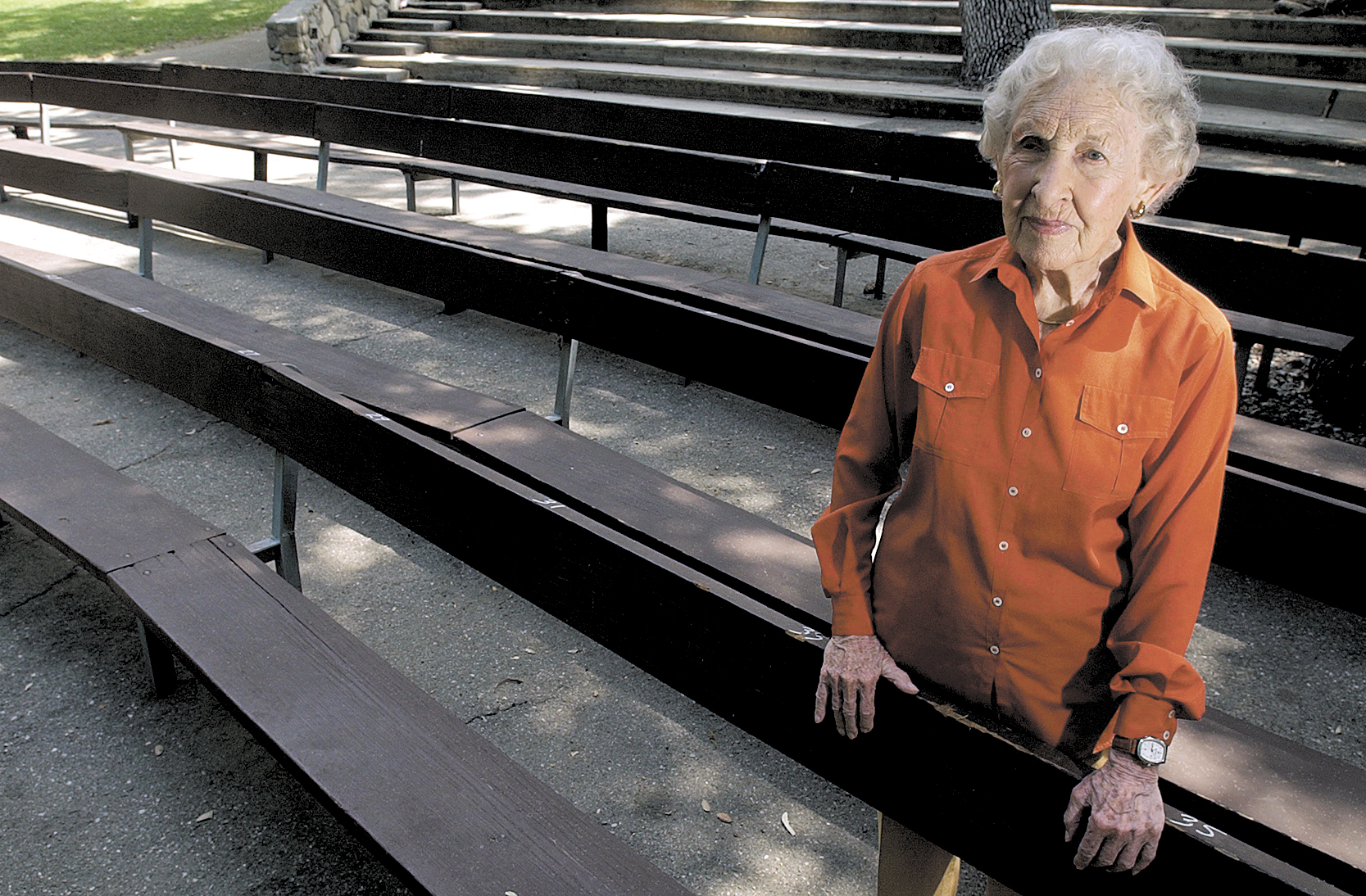
The Ojai Music Festival is deeply saddened by the passing of one of its longest-serving staff members and volunteers, Betty Izant on July 4, 2013. Betty was a part of the Festival for more than 40 years, joining the office in 1969 as secretary. This soon became a full time position and led to her life-long involvement with the organization as secretary, manager, board member, box office manager, and historian.
Betty was born in Cleveland, Ohio. She lived in Corning, New York before moving to Los Angeles, graduating from Hollywood High School. She attended UCLA and Frank Wiggins Trade School, where she majored in dress making and design. She worked as a dress designer for Mable Morrow and as Executive Secretary for the Huntington Hartford Foundation, a residence for writers, artists and composers until 1965.
Upon the Foundation’s closure, Betty moved to Ojai, where she served as assistant to the director of Happy Valley School (now Besant Hill) for two years. She spent time as a freelance secretary before joining the Ojai Music Festival in 1969. She officially “retired” in 1984, but stayed on as a volunteer to assist with ticket sales until 2011.
Betty’s lifelong commitment to the Festival was an essential part of making the organization what it is today. From overseeing numerous transitions in the 1970s and 1980s to her keen memory for patrons (and their seats!), which made ticketbuying a uniquely personal experience that continues to this day, Betty’s devotion to the Festival and its mission imbued each task she undertook . Her indomitable spirit and steadfast dedication will be greatly missed by all of us here at the Festival, and by the Ojai community at large.
Photo taken by the Ventura County Star.
Updates on Free Events: Sunrise Concert Parking, Gamelan Performances and More!

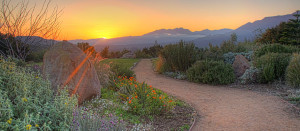 This year, the Ojai Music Festival will present 37 events in just four days! This includes main Libbey Bowl concerts, Ojai Talks, Ojai Films, Concert Insights, and an abundance of free community events. Here are some new updates on some of these free events to help better prepare you:
This year, the Ojai Music Festival will present 37 events in just four days! This includes main Libbey Bowl concerts, Ojai Talks, Ojai Films, Concert Insights, and an abundance of free community events. Here are some new updates on some of these free events to help better prepare you:
|
Sat June 8: The parking lot at Besant Hill will open at 7:00am. Please bring a chair or blanket for the concert, or feel free to wander as you enjoy John Luther Adams’ Strange and Sacred Noise. We highly recommend wearing flat comfortable shoes. Besant Hill School’s address is 8585 Santa Paula Ojai Road.
Sun June 9: Due to the high volume of ticket requests for the Sunday Sunrise Concert featuring John Luther Adams’ songbirdsongs, we are providing a free bus shuttle to take ticketed patrons to Meditation Mount. The shuttle and all concert parking will be located at Boccali’s Restaurant and the first shuttle will begin loading at 7:00am. Please plan to arrive well before the concert starts to guarantee parking. Only authorized vehicles will be allowed at Meditation Mount. Boccali’s address 3277 Ojai Santa Paula Road (located at Ojai Avenue and Reeves Road).
While you wait for the concert to begin at 8:00am, you can participate in bird watching with the Ojai Valley Land Conservancy at 7:15am. Please bring your own binoculars. RSVP at [email protected].
Maps and directions will be available at the Festival box office. If you have any questions, please call our box office at 805 646 2053.
|
Gamelan Performances: Fri, June 7 and Sat, June 8
These two free concerts performed by the acclaimed Gamelan Sari Raras at the Libbey Park Gazebo will be special treats for the community! Limited seating will be provided; we encourage you to bring your own chairs or blankets.
Fitness Classes: Fri, June 7; Sat, June 8; Sun, June 9
Dance with MMDG: Sat, June 8
Festival patrons and the Ojai community have a rare opportunity to join dancers from the acclaimed Mark Morris Dance Group, who will help jump-start the day with basic stretching. The fitness classes will be held Friday, Saturday and Sunday morning, 9:00-10:00am, at the Libbey Park Flagpole Lawn. We recommend wearing comfortable shoes or sneakers.
And there’s more — learn dance moves from dancers of the Mark Morris Dance Group who will teach a few moves from one of the works featured at the Friday evening concert. This free event will be at the Ojai Art Center. We recommend wearing flat shoes (you will also have the option to dance barefoot).
Both events are free and open to the public.
View complete schedule here >>
eighth blackbird Wins Grammy
 In 2009, music director eighth blackbird brought to the Libbey Bowl stage the world premiere of Slide by Steven Mackey and Rinde Eckert. This past Sunday, “Lonely Motel: Music from Slide” walked away with a Grammy for Best Small Ensemble Performance. Congrats to our Festival friends and Cedille Records!
In 2009, music director eighth blackbird brought to the Libbey Bowl stage the world premiere of Slide by Steven Mackey and Rinde Eckert. This past Sunday, “Lonely Motel: Music from Slide” walked away with a Grammy for Best Small Ensemble Performance. Congrats to our Festival friends and Cedille Records!
And special thanks to the Constance Eaton Fund for supporting the Ojai Music Festival’s co-commission of Slide.
FROM OUR FESTIVAL VAULT:
For our 2009 Festival, Frank Oteri wrote a piece on Mackey and Eckert’s partnership. Read the article below:
A Multi-Media Multi-Art Form Is-It-Music-Is-It-Theater Extravaganza
By Frank J. Oteri
It’s fitting that Steven Mackey and Rinde Eckert’s Slide—which is about the manipulation of perception—is difficult to categorize. Tim Munro—the flutist for eighth blackbird (the contemporary music ensemble who will premiere the work alongside its creators at Ojai on June 12, 2009)—calls it “a multi-media, multi-art form, is-it-music-is-it-theater extravaganza.” Rinde Eckert, Slide’s librettist and principal singer/actor elaborates, describing it as “concert theater, distinct from an oratorio for its involvement of the instrumentalists as theatrical role players.”
The music of composer/guitarist Steven Mackey and the texts of writer/director Rinde Eckert have always been difficult to pigeonhole. Mackey’s music has often been characterized as having one foot in rock and the other in contemporary classical music, but it is ultimately not easily reduced to binaries. Though he made his mark on the musical landscape with compositions like Physical Property (1992), which combines the aggressive sound-world of the electric guitar with the more rarified timbres of a classical string quartet, much of his music is also equally informed by his years of immersion into early music as an aspiring lutenist as well as a deep affection for the standard orchestral and chamber music repertoire. And, of course, in the early 21st century both rock and so-called contemporary classical music each contain a universe of sub-genres which mix and match along with Mackey’s other influences into a highly personal stylistic mélange. Mackey has cheekily described himself as a mutt. In reality, as composers of subsequent generations are now creating music which unselfconsciously references all kinds of genres without hierarchy, Mackey, still somewhat boyish both in attitude and appearance at age 53, is actually the harbinger of a new breed.
Rinde Eckert’s work might be even more challenging to explain. A writer, actor, singer, musician, director, and even sometime composer, Eckert—though principally known for his one-man theatre pieces which involve a broad range of performance techniques—has also collaborated on a wide range of projects with other artists including operas, musical theater and dance pieces. (See sidebar.) His partnership with Mackey, however, has proven to be among his most fruitful and wide-ranging. “Steve and I are always on the look out for projects we can work on together,” Rinde says. “I keep a number of ideas or concepts on the back burner.” Their first co-creation, the one-man opera Ravenshead, which was hailed in USA Today as the “best new opera of 1998,” re-tells the surreal but true story of a man (performed by Eckert) driven mad in his failed attempt to sail by himself around the world. Mackey’s 45-minute cantata Dreamhouse (2003), casts Eckert (with whom Mackey co-wrote the text) in the singing and speaking role of a secular evangelist who explodes the notion of the American dream amidst a backdrop of a chamber choir of four voices, four electric guitars, and symphony orchestra. The following year, Eckert approached Mackey about forming a progressive rock band in which he could explore musical and lyrical ideas that didn’t exactly fit theatrical settings. The resulting group, Big Farm, debuted at New York City’s Joe Pub last May and a CD is scheduled for release later this year.
Slide returns Mackey and Eckert to the realm of Ravenshead to some degree. Once again, it tells the true story of an individual relentlessly committed to a mad pursuit. In this case, a psychologist named Renard conducts a deceptive experiment, asking subjects to view and identify a series of out-of-focus slides as a shill disagrees with what they say, making the subjects defensive and uncertain of their awareness. But this time around, the musicians who accompany Eckert’s monologue—the six members of eighth blackbird joined by Mackey on electric guitar—additionally take on supporting acting roles as characters in the story and things are not quite so straight forward.
“As opposed to Ravenshead which was a linear narrative, Slide will be more of a poetic gestalt,” says Eckert. “The slide experiment serves as a governing metaphor for an inquiry into how we make sense of what we can’t fully comprehend.” Mackey further elucidates, “All the performers are characters, led by Renard (played by Rinde), a psychologist, but rather than propel a story the whole thing behaves like music—opening windows, delineating places, suggesting states of consciousness without nailing them down to a linear series of events. In that sense I would say Slide sits between Ravenshead, Dreamhouse, and Big Farm. There is a clearer sense of character and context than Dreamhouse, but less of a linear story than Ravenshead. Slide is more of a static image—a slide, not a movie—viewed from different angles. It has somewhat of a band vibe like Big Farm where the music is intended to be our story, our personae, our attitudes rather than mediated through chamber music performance ritual.”
The project began to evolve shortly after Steven Mackey heard eighth blackbird perform his composition Indigenous Instruments at the University of California at Davis in the summer of 2003. According to him, “They played the snot out of my piece. They did things that I had not heard before, and if they had asked me if it was okay I would have tried to talk them out of it. But when they just did them I was totally convinced. They are never satisfied just getting from the beginning to the end. All their performances are somewhat theatrical in the sense that they try to contextualize the music with their movement. I had the idea to write a big piece of music where their performance sensibilities would be explicitly utilized, where memorization, movement, language, and lighting would blur the lines between musician and character, music and persona. I asked Rinde if he was into such a thing and he was, so we started brainstorming ideas.”
Slide is an ideal project for eighth blackbird, which over the past 13 years has won audiences over not only through their virtuosity, but by bringing out the inner drama in every piece of music they play, enhanced by memorization, on-stage poise, and sheer conviction. More than just the pre-eminent “Pierrot plus percussion” ensemble—contemporary music’s signature combo of flute, clarinet, violin, cello, piano, and percussion, the group has always championed works that blur the lines between music, theater, and performance art, ranging from Paul Moravec’s The Time Gallery to singing in the dead of night (2007), co-composed by Bang On A Can’s three founders Michael Gordon, Julia Wolfe, and David Lang. But Slide takes this blurring of lines further than anything they have done thus far.
Thomas W. Morris named one of Persons of the Year by Alex Ross
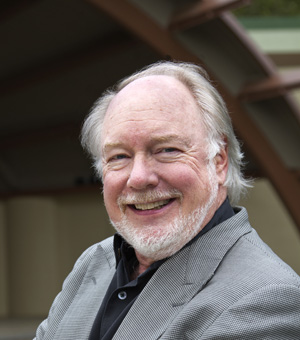
Alex Ross, Music Critic for the New Yorker Magazine (and one of the most influential writers on music today) named Persons of the Year — Jane Moss and Ojai Music Festival’s Thomas W. Morris, for their hearteningly inventive programming at Lincoln Center and Spring for Music/Ojai.
Bent Sorensen Wins BASCA Award
Danish composer Bent Sorensen’s piano concerto, La Mattina, was presented with a 2011 British Composer Award sponsored by BASCA (British Academy of Songwriters, Composers and Authors), which recognizes contemporary classical music showing “flair, originality and the power of communication.” La Mattina, which was written for Leif Ove by Mr. Sorensen, will receive its West Coast premiere during the Festival’s June 9 evening concert.
Leif Ove Andsnes and eighth blackbird Earn Grammy Nominations
2012 Music Director Leif Ove Andsnes received two Grammy nominations for his recording of Rachmaninov with the London Symphony Orchestra in the ‘Best Classical Instrumental Solo’ and ‘Best Engineered Album’ categories.
Another Grammy nod goes to composer Steve Mackey’s “Lonely Motel,” which the 2009 Music Director eighth blackbird premiered at the Festival as Slide. The work received nominations both for ensemble performance and contemporary classical composition.
View the 2012 Festival curated by Leif Ove Andsnes
Read the rest of the Classical Music Grammy nominations

